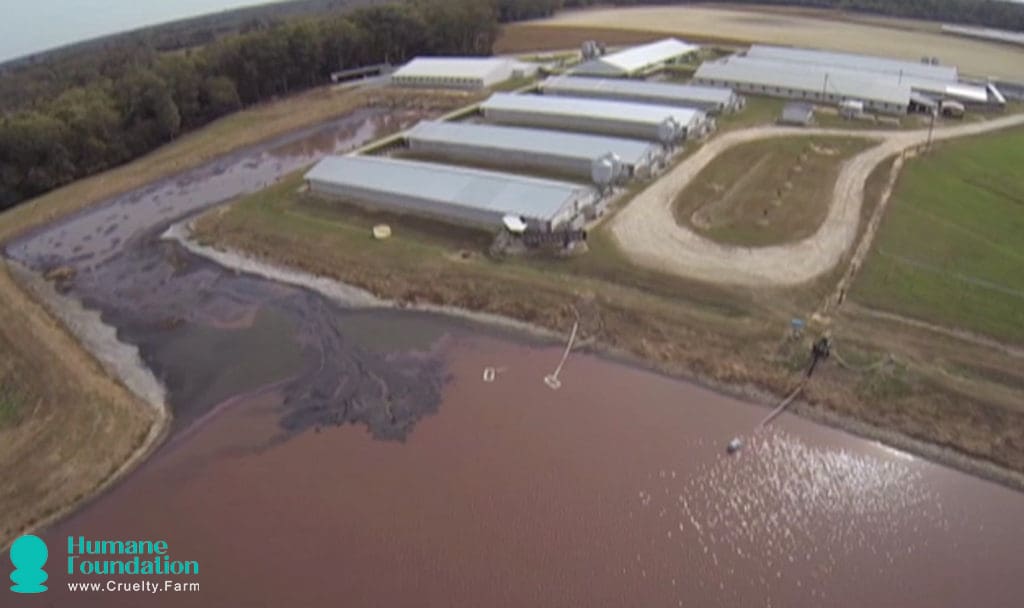Kev ua liaj ua teb ua liaj ua teb yog ib qho kev coj ua hauv kev ua liaj ua teb niaj hnub no, tab sis nws los nrog cov txiaj ntsig zoo ib puag ncig. Ib qho ntawm cov teeb meem tseem ceeb tshaj plaws uas cuam tshuam nrog kev ua liaj ua teb ua liaj ua teb yog cov pa phem, uas tuaj yeem tshwm sim ntau yam xws li dej paug, huab cua paug, thiab kev siv tshuaj lom neeg. Hauv tsab xov xwm no, peb yuav tshawb txog qhov cuam tshuam ntawm lub Hoobkas ua liaj ua teb rau ib puag ncig, tshwj xeeb yog tsom rau dej zoo, huab cua paug, thiab kev siv tshuaj lom neeg hauv kev ua liaj ua teb. Los ntawm kev nkag siab txog cov teeb meem no, peb tuaj yeem ua haujlwm ntawm kev siv cov kev daws teeb meem zoo los txo cov pa phem los ntawm cov chaw ua liaj ua teb thiab tiv thaiv peb lub ntiaj teb kev noj qab haus huv.
Qhov cuam tshuam ntawm Hoobkas ua liaj ua teb rau dej zoo
Kev ua liaj ua teb ua liaj ua teb yog ib qho tseem ceeb rau kev ua qias tuaj hauv dej los ntawm kev tso cov tsiaj pov tseg thiab tshuaj lom neeg rau hauv dej. Cov dej tsis huv no tuaj yeem tsim kev puas tsuaj rau cov dej hauv dej thiab muaj kev cuam tshuam tsis zoo rau tib neeg kev noj qab haus huv.

Cov dej tsis huv los ntawm cov chaw ua liaj ua teb tuaj yeem muaj cov kab mob phem, tshuaj tua kab mob, tshuaj hormones, thiab tshuaj uas tuaj yeem nkag mus rau hauv cov dej hauv av.
Kev siv zog los txo cov dej qias neeg los ntawm kev ua liaj ua teb hauv lub Hoobkas suav nrog kev siv cov txheej txheem tswj cov khib nyiab, siv cov thev naus laus zis tshiab rau kev kho cov khib nyiab, thiab ua raws li cov cai ntawm ib puag ncig.
Nws yog ib qho tseem ceeb rau kev ua liaj ua teb ua liaj ua teb los ua qhov tseem ceeb ntawm kev tswj xyuas dej kom zoo los xyuas kom muaj kev tiv thaiv ntawm peb cov dej thiab ecosystems.
Huab cua kev txhawj xeeb hauv kev ua liaj ua teb ua liaj ua teb
Factory ua liaj ua teb tso cov pa phem xws li ammonia, methane, thiab plua plav mus rau hauv qhov chaw. Cov pa phem no tuaj yeem ua rau muaj kev puas tsuaj rau tib neeg kev noj qab haus huv thiab ib puag ncig.
Kev cuam tshuam rau huab cua los ntawm cov chaw ua liaj ua teb tuaj yeem ua rau muaj teeb meem ua pa, ua rau muaj mob hnyav ntxiv xws li mob hawb pob, thiab ua rau muaj cov pa phem thiab cov teeb meem hauv huab cua.
Txhawm rau daws qhov kev txhawj xeeb ntawm huab cua, kev ua liaj ua teb hauv lub Hoobkas tuaj yeem siv cov txheej txheem xws li cov tshuab ua pa kom zoo, kev tswj cov pa tawm, thiab cov tswv yim tswj cov ntxhiab kom txo tau cov pa phem rau hauv huab cua.
Kev siv tshuaj lom neeg thiab nws qhov cuam tshuam ib puag ncig hauv Factory Farming
Cov tshuaj xws li tshuaj tua kab thiab tshuaj tua kab mob feem ntau yog siv hauv kev ua liaj ua teb, ua rau muaj kev pheej hmoo rau ecosystems thiab tib neeg kev noj qab haus huv. Kev siv dav dav ntawm cov tshuaj no hauv kev ua liaj ua teb tau ua rau muaj kev txhawj xeeb txog lawv qhov cuam tshuam rau ib puag ncig.
















































